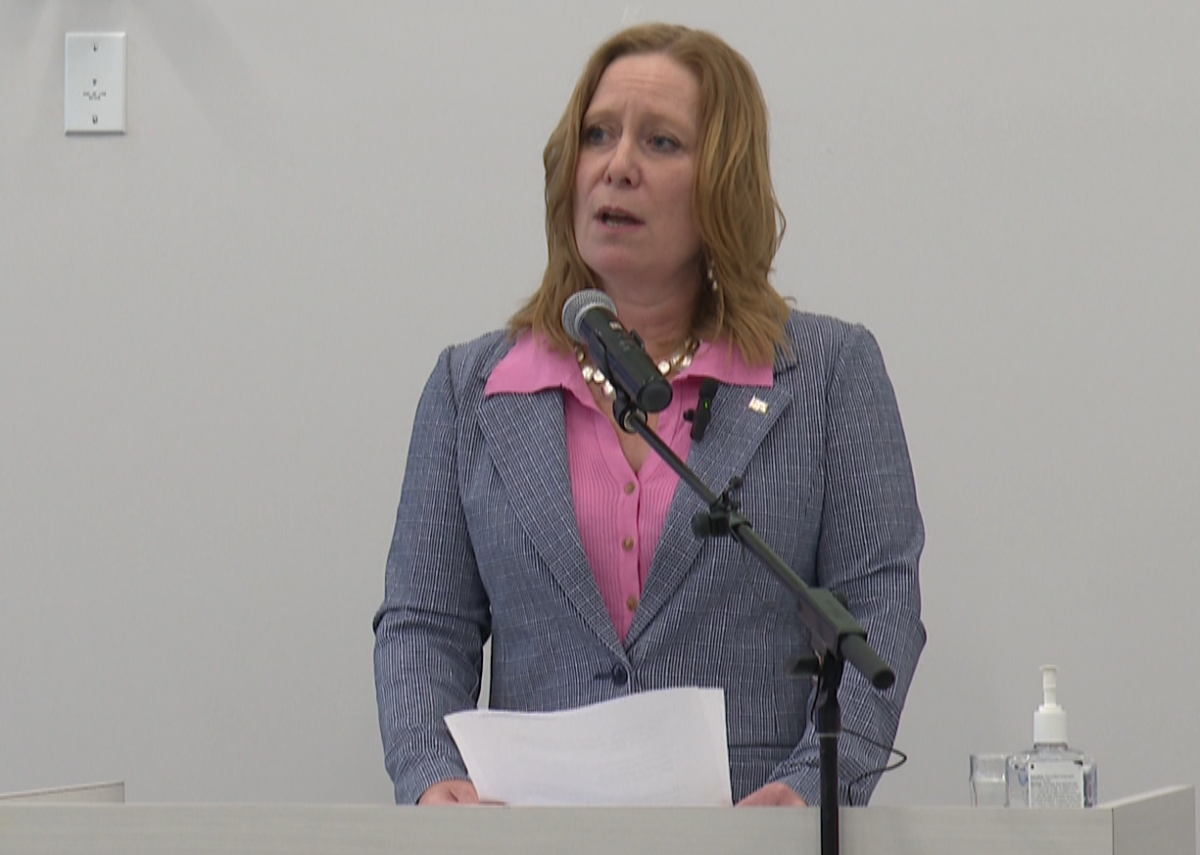Housing Minister Jill Green made herself clear during an announcement detailing New Brunswick’s housing strategy on Thursday.

“The rent cap is not in the strategy,” she said.
She referenced a meeting in Ottawa on Tuesday while saying, “I was there with the other Ministers of Housing all across Canada and I was speaking very specifically with the (ministers) that have rent caps in their particular province,” she said.
Six provinces currently have a rent cap in place.
“They have a myriad of different problems because they have the rent cap in place,” she said.
Housing advocates like Matthew Hayes of the N.B. Coalition for Tenants Rights have been calling for a rent cap in New Brunswick since the temporary one it had in 2022 ended in January.

“The tenants that I talk to are extremely fearful that they won’t be able to afford the next rent increase and there’s nothing in today’s announcement that alleviates that fear,” Hayes said in an interview on Thursday.

Get daily National news
Darcey Wallace of ACORN NB, a tenants’ advocacy organization, said his organization was disappointed that a rent cap was off the table.
The housing strategy includes a rent bank, which provides short-term loans for one-off expenses, like one month of rent or a security deposit, for up to 750 renters.
It also includes a new benefit for renters aimed at seniors and families in need, as well as those with disabilities.
While Wallace applauds those initiatives, he’s concerned about subsidizing rent without a rent cap in place.
“You’re putting more money into the market for housing, which is going to increase the cost of housing. A rent cap is a solution that allows the cost of rent to increase slowly and evenly,” he said.
Green housing critic Megan Mitton was pleased to hear about the rent bank, but said the strategy lacks protections for renters.
“We don’t see a rent cap and we don’t see protections to keep affordable housing stock that already exists,” she said.
She would also like to see measures put in place to prevent spikes in apartment rental prices between tenants.
“Having (rent control) tied to the apartment would mean that between one tenant to another, the rent wouldn’t spike,” she said. “A rental registry would also be helpful so renters could see what the price was before so they know that there’s some fairness involved.”

When asked about rental increase protection between tenants at the announcement, Green said while it wasn’t included in the strategy “everything is on the table.”
Liberal housing critic Benoît Bourque said a rent cap is needed in light of the high level of migration to the province driving up rents and reducing supply.
“So in these current conditions where you have this spike of rent increases, I really feel that a rent cap is very efficient,” he said.
The strategy includes a goal of having six thousand housing starts a year.
New Brunswick Apartment Owners Association president Willy Scholten said he was hoping to see tax breaks for the sector to enable this.
“The private sector is dealing with additional cost increases and especially interest rates in the last year have gone up tremendously,” he said in an interview.
“The report doesn’t talk about the private sector as a partner in that,” he said.
He said property taxes were the “biggest operating cost” for apartment owners, and was disappointed to see that wasn’t addressed in the strategy.
- Old age security reform can’t be political ‘third rail,’ group urges
- Transport Canada is ‘monitoring’ Boeing Dreamliner grounding by Air India
- Harper and Chretien talk Alberta separatism, Canadian sovereignty in Ottawa
- Ontario town worried over planned military radar site: ‘Very frustrating situation’








Comments